Supreme Court
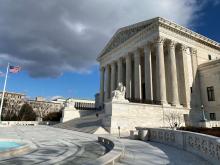
The justices ruled 7-2 in favor of the administration.
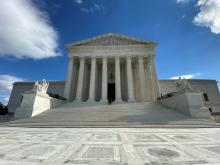
The U.S. Supreme Court on Thursday ruled against Donald Trump's bid to end a program that protects from deportation hundreds of thousands of immigrants, dubbed "Dreamers," who entered the United States illegally as children.
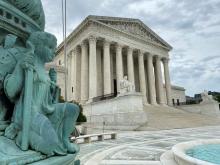
The U.S. Supreme Court on Monday delivered a watershed victory for LGBTQ rights, ruling that a landmark federal law forbidding workplace discrimination protects gay and transgender employees.
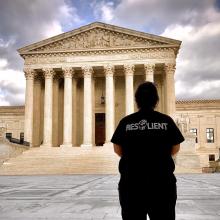
I have been called “illegal” most of my life. Coming to the United States without legal authorization somehow made me “illegal,” less than, and undeserving of basic human rights. To cope with it, I bought into the lie of merit: If I simply worked hard enough and did all the “right” things, I would become worthy. I always strived to be “good” — to not break any laws and to focus on school. But still — my worthiness never came.
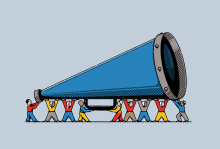
ON A COLD January day in 2010, Supreme Court Justice John Paul Stevens felt so strongly about the dangers of corruption that he delivered a rare oral dissent in the Citizens United case. Decrying the majority’s “crabbed view of corruption” that focused on quid pro quo arrangements exclusively, Justice Stevens countered, “There are threats of corruption that are far more destructive to democratic society than the odd bribe. Yet the majority’s understanding of corruption would leave lawmakers impotent to address all but the most discrete abuses.”
In retrospect, the striking thing from that winter morning was not so much the existence of Steven’s oral dissent (though notable), but the basic agreement on all sides. No one on the court contested the idea that corruption poses a threat to “democratic society.” The majority and the minority simply split on whether the specific practice at issue constituted a form of corruption.
Ten years later, we cannot take the same presupposition for granted. Instead of identifying corruption as a danger to the republic, we are all too ready to treat it as an inescapable part of American life. Indeed, the rationalizations have now become as predictable as they are depressing: It may be distasteful, but both sides do it. It is a necessary evil. Get over it.
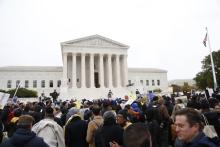
“Because of that program, I was able to buy a home, get a job and pursue a career,” Leezia Dhalla, who came to the U.S. with her family in 1996, at the age of six, said in an interview. Dhalla, who was among thousands of DACA supporters rallying outside the Supreme Court, said her family became undocumented because a lawyer mishandled their paperwork.
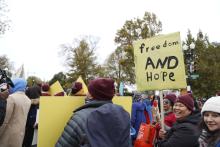
The DACA oral arguments drew thousands of protesters, DACA recipients, faith leaders, and organizers to the steps of the Supreme Court.
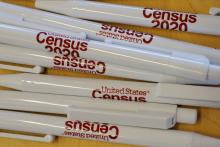
In a stinging defeat for President Donald Trump, his administration ended its effort to add a citizenship question to the 2020 U.S. census, saying that it will begin printing forms that do not include the contentious query. But, nevertheless, Trump later indicated he would still try to get the "most vital" question included on the questionnaire.
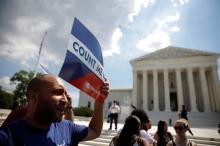
The right to be counted is at the foundation of our faith and our democracy. In Matthew 18:12–14) and Luke (Luke 15:3–7) Jesus tells the iconic parable about the lost sheep. A man, who owns 100 sheep, goes to great lengths to find one missing sheep out of the 100 and when he finally recovers the lost sheep, he is happier about the one sheep that is found than the 99 who are safe. The parable speaks volumes about the degree to which God shows a particular concern and attention around anyone who is lost or falls in harm way. In a similar vein, we should be alarmed and equally committed when one person is miscounted or disregarded in our society. Our democracy loses its integrity and legitimacy when people and communities are made invisible and further marginalized by undercounting in the census.
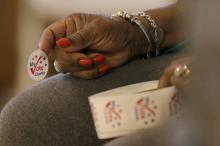
The ruling, authored by Chief justice John Roberts, delivered a huge setback to election reformers who had hoped the court would intervene over a growing trend in which parties that control state legislatures use the electoral district line-drawing process to cement their grip on power and dilute the voting power of people who support the rival party.
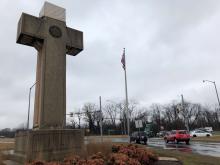
While the Establishment Clause's scope is a matter of dispute, most Supreme Court experts predict the challenge to the Peace Cross will fail, with the justices potentially setting a new precedent allowing greater government involvement in religious expression.

The U.S. Supreme Court on Tuesday let President Donald Trump enforce his policy barring certain transgender people from joining or staying in the military as the justices put on hold lower court rulings blocking the plan on constitutional grounds.
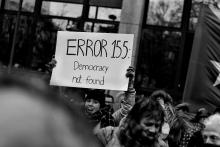
Of course the system is rigged — systems are always rigged to protect the wealth, power, and self-interest of those who created them, those who benefit from them. That’s not hyperbole; that’s reality, that’s human nature, and that’s what the Bible calls sin. And that’s why systems need to be held accountable — to the common good rather than just the system makers and controllers. And that’s why Jesus calls us to protect, in particular, "the least of these" who are most vulnerable to the systems' exploitation. This is why defending systems that just maintain the powerful’s own self-interest while neglecting the interests of others, especially the most vulnerable, is not just bad politics — it’s bad theology.
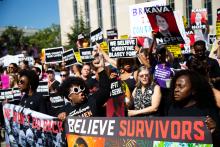
Rain and a palpable heaviness covered the Brett Kavanaugh and Dr. Christine Blasey Ford hearings last week. This afternoon, Cancel Kavanaugh: Believe Survivors marchers perspired under a hot sun while they shouted resistance to the Supreme Court nominee.

Twenty-seven years ago, as an African-American female clergy leader and legislative advocate, I operated in two worlds dominated by male power – religion and politics. I watched Anita Hill sit with the same quiet dignity as Rosa Parks resisting racial segregation on an Alabama bus by refusing to give up her seat to a white man. Rosa Parks went to jail. Anita Hill watched as Clarence Thomas was voted onto the U.S. Supreme Court. For both women, it looked like the dominion of male power had won.

From the start of his bid for the Oval Office to now, the 45th president of the United States has drawn plenty of accusations of illegal activity for his finances and the funds of his companies. Many of us have paid close attention to the developments of investigations into this money, watching cable news and following journalists we trust on Twitter. But perhaps we should also turn our attention to other areas of our government, look beyond the executive branch to search for signs of money and politics intermingling in nefarious ways.

From ‘war on poverty’ to ‘war on drugs’

Women have the right to live free from violation to their bodies. There is nothing profound about this statement. I want to believe it holds no hint of hyperbole, that this is a commonly held belief, that it is in fact true But in light of the rhetoric circulating in recent weeks, I’m not so sure.
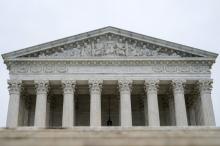
We don’t often think of our current-day allegiances existing within decades, even centuries, of struggle. Sometimes they do. With the nomination of Brett Kavanaugh to the U.S. Supreme Court, President Donald Trump has pushed our nation to an existential point of decision about who we are and who we will be for at least the next two to three generations.
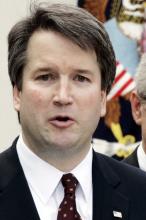
President Donald Trump has chosen conservative federal appeals court Judge Brett Kavanaugh as his nominee for U.S. Supreme Court Justice, NBC News reported on Monday, just before the official White House announcement.
Kavanaugh would replaced retiring Justice Anthony Kennedy if confirmed by the U.S. Senate.